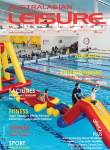FIBA approves use of glass LED courts for elite tournaments

The International Basketball Federation (FIBA) has approved the use of LED glass courts in elite-level tournaments, allowing new broadcast experiences and sponsorships activations.
Previously, ‘tier one’ competitions such as the FIBA Basketball World Cup have been required to use wooden flooring for safety reasons and to protect the integrity of competition. However, the governing body is now satisfied that advances in glass floor technology meet the standards expected at its most high-profile competitions.
The change will permits two types of glass floor, both manufactured by the German company ASB.
The ASB MultiSports floor has LED marking lines under it while the ASB LumiFlex floor has a full video floor that allows for interactive training applications and increased show staging, as well as extra advertising choices.
The flooring also allows for player monitoring, displaying accomplishments, and data that improve the viewing experience both in the arena and on the broadcast.

Welcoming the development, ASB Chief Executive, Christof Babinsky stated “we see FIBA as the global organisation to move basketball forward.
“For this, we have a joint vision. We have developed a no-compromise sports floor with, firstly, the athlete in mind. The GlassFloor features ceramic dots for grip, that provide completely equal levels of control across the surface without causing skin burn when falling as well as higher elasticity at equal ball rebound.
“FIBA level one is the most valuable approval in the world of indoor sports and enables our clients to hold high-end basketball tournaments, integrating unseen elements for audience entertainment and advertising.”
ASB claims that its flooring has the best level of shock absorption and flexibility to reduce strain on player joints and provides the rebound value that sports like basketball require.
Glass floors can be used in FIBA competitions from 1st October 2022.
Images: ASB glass floors for basketball. Credit: ASB.
Related Articles
27th May 2022 - Playmakers Program rallies support for FIBA Women’s Basketball World Cup 2022
3rd May 2022 - Molten Ball Relay launched ahead of FIBA Women’s Basketball World Cup in Australia
26th April 2022 - Squash Court design implements sustainable concept of Hangzhou Asian Games
31st March 2022 - Tickets on sale for FIBA Women‘s World Cup in Sydney
29th March 2022 - New basketball courts completed at Newcastle’s National Park
18th March 2022 - Owners of basketball’s Sydney Kings and Flames welcome private equity investment by Wollemi Capital Group
2nd March 2022 - FIBA release statement on Russian teams and officials
1st March 2022 - Host nations open ticket sales for 2023 Basketball World Cup
16th February 2022 - FIBA Women’s Basketball World Cup 2022 teams confirmed for Sydney competition
9th February 2022 - Saatchi & Saatchi secure FIBA Women’s Basketball World Cup 2022 Creative Account
2nd February 2022 - FIBA Women’s Basketball World Cup 2022 Playmakers Program attracts Australian top basketball players
31st January 2022 - Twenty3 Sport + Entertainment appointed to deliver fan engagement for FIBA Women’s Basketball World Cup 2022
14th January 2022 - IAKS and FIBA agree collaboration to help better basketball facilities around the globe
21st September 2021 - MKTG announced as official commercial partner for FIBA Women’s Basketball World Cup 2022
10th February 2021 - Glass digital sports floor revolutionises arena concepts
27th August 2020 - Melissa King named as Chief Executive of FIBA Women’s Basketball World Cup 2022
2nd October 2019 - Largest-ever FIBA World Cup reaches record-breaking audience of three billion
2nd June 2017 - Squash SA introduces world first 24/7 glass court to Adelaide






